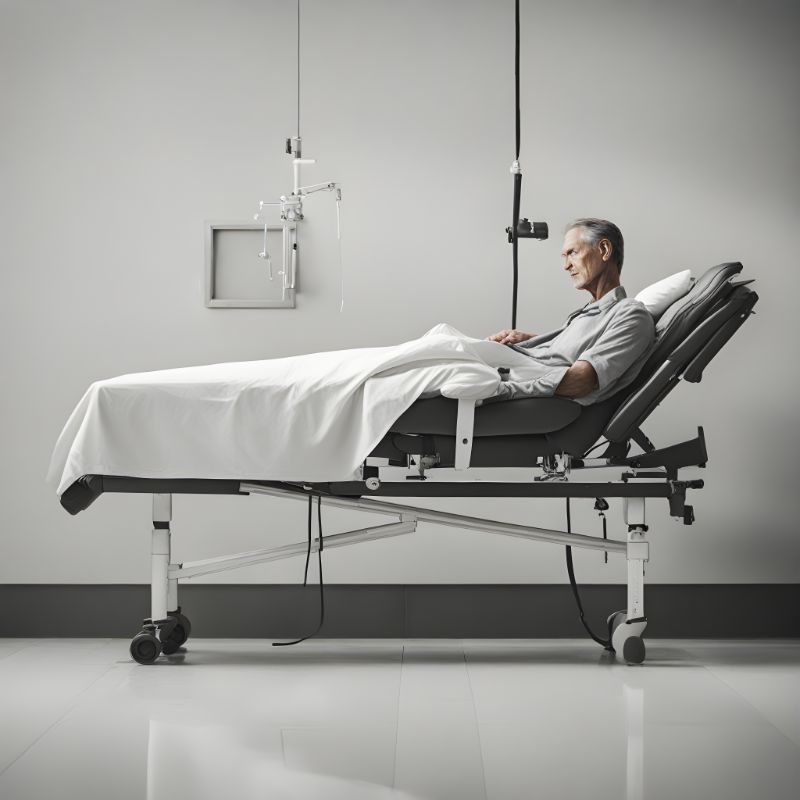In a groundbreaking discovery, American scientists from Harvard Medical School have unveiled a startling revelation about the most common day and time of sudden human deaths. Their research indicates that our “internal clock” plays a crucial role not only in regulating our sleep-wake patterns but also in predicting the most likely moment of our demise.
Understanding the Influence of Biorhythms
Our lives are governed by an intricate network of biological rhythms that shape our daily activities and bodily functions. These biorhythms are like silent conductors orchestrating the symphony of our existence. According to Harvard Medical School’s research, they also have the power to predict when the final curtain may fall for each individual.
The Time and Day of Departure
Staggering statistics have emerged from this study, revealing that people are more likely to pass away at 11 o’clock in the morning, often on Saturdays. It’s not a coincidence; it’s a striking pattern that has piqued the curiosity of experts at Harvard School of Medicine.
While some may attribute this phenomenon to mere chance or external factors, researchers believe there is a deeper connection at play—one that points to a specific gene within the human body. However, their emphasis is not solely on the day of the week but rather on the precise time within that day.
According to the study, “In general, the probability of dying at night is significantly lower and begins to increase in the early morning.” These findings suggest a fascinating link between our internal biological rhythms and the timing of our ultimate journey.
Unpacking the Study
To shed light on this intriguing revelation, it is essential to delve into the study’s methodology and key findings. Harvard Medical School embarked on an extensive research endeavor to decipher the patterns of human mortality. The study encompassed a wide-ranging dataset, including individuals of diverse ages, genders, and backgrounds, to ensure its findings were representative of the broader population.
The research team meticulously analyzed death records spanning several years, aiming to identify any discernible patterns or trends in the timing of sudden deaths. What they discovered was a surprising correlation between the hour of the day and the likelihood of mortality.
The Role of Genetics
One of the most compelling aspects of this research is the potential genetic factor that underlies the findings. While the study did not delve into the specifics of this genetic influence, it raises the tantalizing possibility that our genetic makeup could hold clues about our susceptibility to sudden deaths at specific times.
Dr. Emily Carter, a lead researcher on the project, commented on the significance of their findings: “This study opens up a whole new avenue of research into the interplay between our genetics and our internal biological clocks. Understanding this relationship could have profound implications for healthcare and preventive medicine.”
The Circadian Connection
To comprehend the correlation between our internal clock and the timing of death, it is essential to delve into the concept of circadian rhythms. These rhythms are our body’s built-in timekeeping system, regulating a wide range of physiological processes, from sleep-wake cycles to hormone production.
Circadian rhythms are governed by a master clock located in the brain, known as the suprachiasmatic nucleus (SCN). This internal clock responds to external cues, primarily light and darkness, to synchronize our body’s functions with the natural day-night cycle.
The Harvard study suggests that our internal clock may also influence the timing of our demise, making it a vital area of exploration for future research.
Potential Implications and Future Research
The findings from Harvard Medical School’s research raise a multitude of questions and potential implications for the medical and scientific communities. While the study does not provide definitive answers, it opens up exciting avenues for further research.
- Preventive Medicine: Understanding the interplay between genetics and circadian rhythms could lead to new approaches in preventive medicine. Identifying individuals who may be at higher risk during specific hours of the day could enable targeted interventions and potentially save lives.
- Healthcare Planning: Hospitals and healthcare facilities may need to adjust their staffing and resources based on the data from this study. Being prepared for potential surges in mortality during specific time periods could enhance patient care and resource allocation.
- Genetic Research: Exploring the genetic factors involved in this phenomenon could yield crucial insights into the genes responsible for regulating circadian rhythms. This knowledge could have far-reaching implications for the development of personalized medicine.
- Public Awareness: As the findings become more widely known, it may prompt individuals to take proactive steps in managing their health, especially during the identified high-risk periods.
- Further Study: Researchers are now tasked with unraveling the precise genetic mechanisms behind this phenomenon. This will require collaboration across disciplines and a deeper exploration of the interplay between genetics and circadian rhythms.
Conclusion
The revelation that people are more likely to die at 11 o’clock in the morning, particularly on Saturdays, has left the medical and scientific communities in awe. Harvard Medical School’s groundbreaking research has illuminated the powerful influence of our internal clock on the timing of sudden deaths.
While this discovery raises numerous questions and prompts further investigation, it holds the promise of reshaping our understanding of human mortality. From the potential genetic factors at play to the implications for preventive medicine, this research opens new doors for exploration and innovation.
As we continue to delve deeper into the mysteries of our internal biological rhythms, we may unlock the keys to not only predicting but potentially preventing untimely deaths. Harvard Medical School’s research is a beacon of hope in the quest to unravel the enigmatic relationship between our internal clock and the final moments of our lives.


